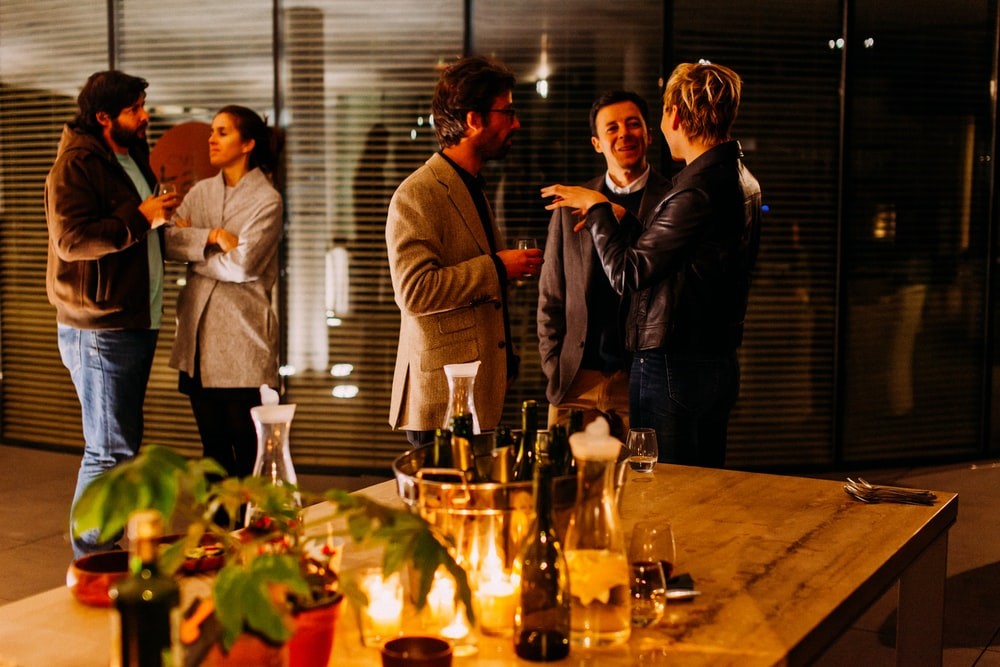Have you ever felt like you have to attend a work celebration or team event? Have you ever felt like you have had to attend a work celebration or team event that you know is going to make you feel uncomfortable? Well, you are definitely not the only one. When employers create events to celebrate things, they are catering for the masses. Events are organised to appeal to the largest number of people. So, they are organised around dominant groups of people. That means it’s very likely that there are people who will find those celebrations uncomfortable. Or they might find the idea of them dull or terrifying so they don’t attend. And if they can bear it, they might feel they have to go and endure the uncomfortable situation.
Am I speaking from experience? Yes, definitely. And I think you will struggle to find someone who has never been to a work social event that made them feel bored, uncomfortable, scared or embarrassed. One of the worst for me was being forced to go to an activity event where you had to hang from trees in the woods. I was told there was no option for me. I had to attend this obligatory ‘fun’ social event even though the idea of it filled me with absolute terror.
So, how can we re-think employee celebration events…
Why the celebrations?
Why do companies spend time, effort and money on company social events?
Well, it’s a way to bring people together, build relationships, celebrate successes and significant events. Employers feel it’s a way of giving something back to employees. And it’s a way of creating team and company cultures away from people’s work. Social events are viewed as a good way for people to network and get to know each other.
The thought behind these events is to show appreciation to employees. It’s part of the benefits employers offer. And you often see social events talked about in job advertisements to attract candidates and show people that this is an employer that looks after their employees.
And there are good reasons to support company social events. 57% of people say having friends at work makes work more enjoyable, which increases productivity. People who have a best friend at work are 43% more likely to report having received praise or recognition for their performance in the last seven days. And those friendships are often built through socialising together, either at company organised events, or employees arranging events together. Many people meet their friends and partners through meeting people through their work.
The problem is, for all the good stories, there are also many horror stories. So many things that can make people feel uncomfortable, or worse. And that’s why we need to think about celebrations and other events carefully.
Celebration horrors

Everyone in your team is very different. So, forcing everyone into a Christmas celebration event might misfire with a lot of people. Some don’t celebrate Christmas, and some simply don’t like Christmas. Some celebrate other religious festivals during the year which are more important to them. Some prefer to keep their socialising away from people at work. And there are those for whom there is nothing more ‘cringeworthy’ than Christmas jumpers, Christmas crackers and enforced jollity with their work colleagues.
And then there are the other reasons too. Around 40% of women report experiencing sexual harassment in the workplace. Throw alcohol and a party atmosphere onto that and you can see why many people want to avoid work social events. Social gatherings can be a place where perpetrators feel it’s acceptable to behave in unacceptable ways.
And we have a culture of work social events being about stories of who got the drunkest. And who danced on tables or did something embarrassing. We normalise bad behaviour at work social events.
We have moved on in how these events are run over the years. Hopefully, we have moved on from the days of holding parties in the office, with paper plates, embarrassing dancing, and tinsel draped awkwardly around desks.
But there is still plenty of uncomfortableness around work social events. People live very different lives and are very different people, so socialising together can lead to things feeling uncomfortable. We have to be careful of what we say, careful of what subjects are discussed and think about how to handle difficult situations. Most people can recall a work event where they had to either deal with unacceptable behaviour towards them or had to decide whether to keep quiet in a tricky conversation. Or perhaps you’re one of the people who once got too drunk at a work event and have never gotten over it?
A lot of this does come from alcohol being routinely a part of company celebrations. We do need to think about that. As events changed during the pandemic, we have had to rethink how we socialise with our colleagues.
Celebrations for everyone
What can employers do to create celebrations that people enjoy and want to participate in? Well to start with, think about how you can create events and celebrations that do include everyone. Perhaps you could give teams a budget to organise something themselves? Or organise different types of events to cater for everyone? And think about whether people would prefer a voucher or money to celebrate a work success with their friends and family.
A few things to think about are:
Alcohol – increasing numbers of people do not drink alcohol and many are turning to alcohol-free options of drinks. So think about a variety of drinks for your events to cater for everyone.
Food – more and more people have food allergies, as they have become easier to diagnose and treat. And currently, around 14% of adults are vegetarian and there are around 1.5 million vegans. All of this shows you that if you are organising events with food, you need to cater for different types of diets at your events.
Mobility – more than 4.4 million disabled people work, and many with hidden disabilities may not want to tell you details about themselves. So events focused on physical activities will exclude some people.
Parents – an obvious one, but one that is often overlooked. People with children, particularly very young children, will struggle to attend events when they need to be with their children. So think about what can be organised at times that people with children can attend.
Hats and fancy dress – it might seem hilarious to the three people in the organising committee to have everyone in crazy hats or fancy dress, but for many people, they will find this very embarrassing and be cringing in the corner. Plus, many don’t want to spend money on fancy dress outfits for work events.
And some creative, inclusive ideas we have heard about are:
- Online quizzes so everyone can attend
- Lunch budget for people to buy a lunch of their choice
- A selection of vouchers for treats for people to choose
- A series of events around a theme for people to choose what they attend
- Film and book clubs for people to contribute ideas
You can also celebrate different festivals at different times of the year. Ask your employees for ideas about what they celebrate. Be clear with people that celebrations are voluntary. Some people will not want to attend whatever you organise and that’s OK. People do not have to give up their free time to work social events if they choose not to.
Celebrate those good times as you wish.
